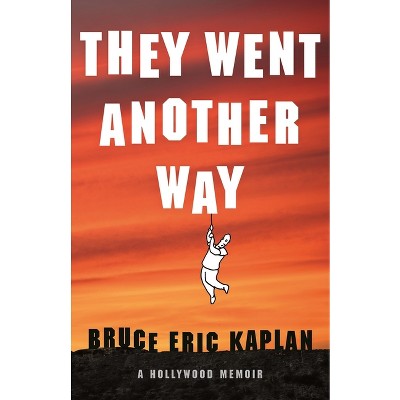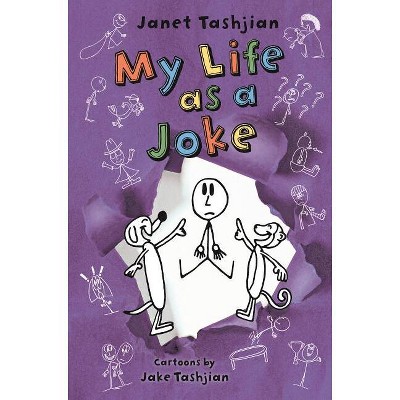Sponsored

Mass Mothering - by Sarah Bruni (Hardcover)
$26.99Save $1.00 (4% off)
Pre-order
Eligible for registries and wish lists
Sponsored
About this item
Highlights
- A haunting, indelible novel of collective grief, resistance, and the radical, life-affirming virtue of testimony A. is an amateur translator, living alone in an unforgiving, late-capitalist metropolis.
- About the Author: Sarah Bruni is a graduate of the MFA program at Washington University in St. Louis and holds a master's in Latin American Studies from Tulane University.
- 272 Pages
- Fiction + Literature Genres, Women
Description
About the Book
"A. is a translator, adrift and burdened by medical debt. She spends her days caring for a young boy who is not and could never be her own. Her nights are spent on the dance floor, chasing the high of oblivion. At a late-night dive, she encounters N., who shares her anguished state and sometimes her bed. Among N.'s meager possessions, A. comes across a slim book about an unnamed foreign town of disappearing boys. Unfinished, the book, Field Notes, documents the testimonies of a community of mothers who gather to mourn their missing sons and dance with their images. A. is transfixed by the mothers' collective chorus of primal grief, by their steely strength, and by their intuitive care for each other. When a near-assault stuns A. out of her inertia, she takes off for the city where Field Notes was written, in search of its author and the end of his story. But A.'s digging leads her instead to the traces of a murdered poet, a woman whose legacy of love and courage dispels the shadow of unspeakable crime. Poignant and profoundly humane, Mass Mothering is told through layered voices, written fragments, and recorded testimonies. It is a story of exile and grief, of the aftershocks of violence in a globalized world, of cause and complicity, and of the life-affirming resistance of documentation. In luminous, sinuous prose, Sarah Bruni ultimately reveals what matters most: the world-bending force of the love of mothers"-- Provided by publisher.Book Synopsis
A haunting, indelible novel of collective grief, resistance, and the radical, life-affirming virtue of testimony
A. is an amateur translator, living alone in an unforgiving, late-capitalist metropolis. Adrift and burdened by debt following a medical trauma, she makes rent caring for a young boy who is not and could never be her own. Her nights are spent on the dance floor, chasing spontaneous connection. There, she encounters N., who shares her numbed state and sometimes her bed. Among N.'s meager possessions, A. comes across a slim book about an unnamed foreign town of disappearing boys. The book, Field Notes, documents the stories of a community of mothers who assemble to mourn their missing sons together. A. is transfixed by this collective chorus of primal grief, the mothers' preternatural strength, and their intuitive care for one another. When a near-assault stuns A. out of her inertia, she takes off for the city where Field Notes was written in search of its author and the end of the story. But A.'s digging leads her instead to the traces of a murdered poet, a mysterious woman whose legacy will intersect unexpectedly and pivotally with A.'s own life. Poignant and profoundly humane, Mass Mothering is told through layered voices, written fragments, and recorded testimonies. It is a luminous story of the mutuality of grief, the aftershocks of violence in a globalized era, and the world-bending force of a mother's love.Review Quotes
"In a fragmented, braided style reminiscent of Jenny Offill's Dept. of Speculation (2014), Bruni weaves together explorations of language, borders, and belonging, as well as of the precarious and frequently terrifying state of motherhood. The result is a deeply intelligent, prismatic look at the personal and political facets of maternal care. A truly original entry into the growing canon of motherhood novels."
--Kirkus Reviews (starred review)
--Booklist (starred review) "A luminous parable on mothering in an era of state violence. This moving novel examines, at a refreshing slant, enduring questions about mothering sons, and how mothers respond to each other's needs during a perilous time. A profound, deeply imagined novel that both addresses and transcends the chaos of our present moment."
--Idra Novey, author of Take What You Need "A masterwork for post-empire American literature. In graceful and atmospheric prose, Bruni has written an essential novel for our times, one in which the ability to separate truths is both an act of struggle and defiance. A heart wrenching, tenacious, and radical accomplishment."
--Michael Zapata, author of The Lost Book of Adana Moreau "Mass Mothering is not only a testament to women's courage and resilience in the face of horrific injustice but a propulsive, intratextual mystery worthy of Bolaño. Bruni writes grief and euphoria, alienation and interconnection, violence and tedium with elegance and lucidity. A timeless and timely novel that dares you to practice radical care, to be braver."
--Darrow Farr, author of The Bombshell "Mass Mothering is a beautiful novel about the importance of really seeing--that is, the pain of bearing witness."
--Yuri Herrera, author of Season of the Swamp "Mass Mothering, set in an unnamed country and narrated by an unnamed woman, nonetheless gives precise names to a variety of losses―of vanished sons, of never-to-exist children, of a state's refuge. Bruni has written an exquisite, wrenching novel."
--Teddy Wayne, author of The Winner
About the Author
Sarah Bruni is a graduate of the MFA program at Washington University in St. Louis and holds a master's in Latin American Studies from Tulane University. She has taught English and writing classes in New York and St. Louis, and she has volunteered as a writer-in-schools in San Francisco and Montevideo, Uruguay. She is also the author of the novel The Night Gwen Stacy Died. Her fiction has appeared in Boston Review, and her translations have appeared in the Buenos Aires Review. She lives in Chicago with her family.Dimensions (Overall): 8.25 Inches (H) x 5.38 Inches (W) x 1.0 Inches (D)
Weight: 1.0 Pounds
Suggested Age: 22 Years and Up
Number of Pages: 272
Genre: Fiction + Literature Genres
Sub-Genre: Women
Publisher: Henry Holt & Company
Format: Hardcover
Author: Sarah Bruni
Language: English
Street Date: February 3, 2026
TCIN: 1003180854
UPC: 9781250392619
Item Number (DPCI): 247-36-1156
Origin: Made in the USA or Imported
If the item details aren’t accurate or complete, we want to know about it.
Shipping details
Estimated ship dimensions: 1 inches length x 5.38 inches width x 8.25 inches height
Estimated ship weight: 1 pounds
We regret that this item cannot be shipped to PO Boxes.
This item cannot be shipped to the following locations: American Samoa (see also separate entry under AS), Guam (see also separate entry under GU), Northern Mariana Islands, Puerto Rico (see also separate entry under PR), United States Minor Outlying Islands, Virgin Islands, U.S., APO/FPO
Return details
This item can be returned to any Target store or Target.com.
This item must be returned within 90 days of the date it was purchased in store, shipped, delivered by a Shipt shopper, or made ready for pickup.
See the return policy for complete information.
Frequently bought together

$9.25
MSRP $12.99
Buy 2, get 1 free select books, music & movies
4.4 out of 5 stars with 21 ratings

$15.50
Buy 2, get 1 free select books, music & movies
4.8 out of 5 stars with 70 ratings

$9.98
Buy 2, get 1 free select books, music & movies
4.6 out of 5 stars with 97 ratings

$10.71
Buy 2, get 1 free select books, music & movies
4.8 out of 5 stars with 345 ratings
Guests also viewed

$82.60
MSRP $150.00
Buy 2, get 1 free select books, music & movies
5 out of 5 stars with 12 ratings

Bestseller
$20.36
was $24.48 New lower price
Buy 2, get 1 free select books, music & movies
4.5 out of 5 stars with 59 ratings

$55.22 - $55.80
MSRP $60.00 - $99.00
Buy 2, get 1 free select books, music & movies
4.7 out of 5 stars with 34 ratings
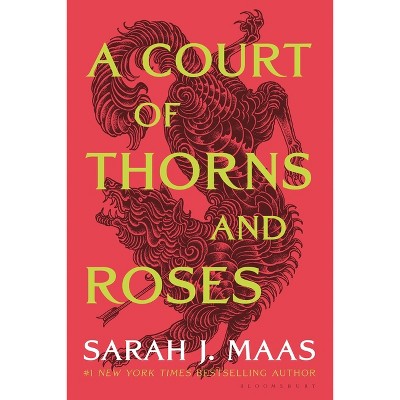
$12.80 - $17.59
MSRP $18.00 - $30.00
Buy 2, get 1 free select books, music & movies
4.7 out of 5 stars with 540 ratings
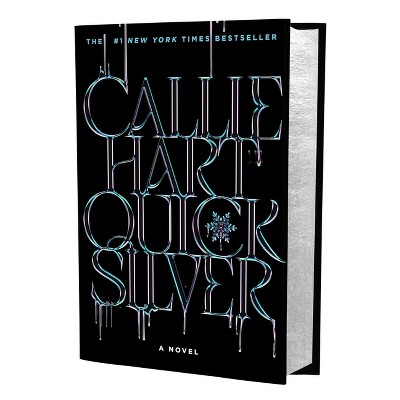
Highly rated
$23.10
MSRP $33.00
Buy 2, get 1 free select books, music & movies
4 out of 5 stars with 58 ratings
Discover more options
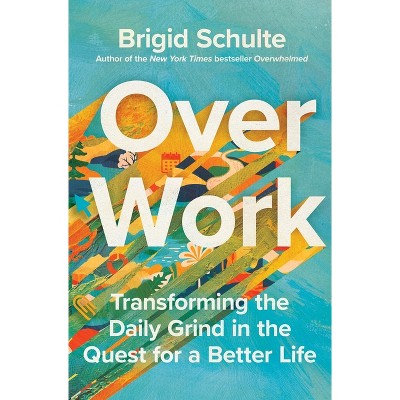
$18.24 - $19.99
MSRP $19.99 - $31.99
Buy 2, get 1 free select books, music & movies
5 out of 5 stars with 1 ratings





